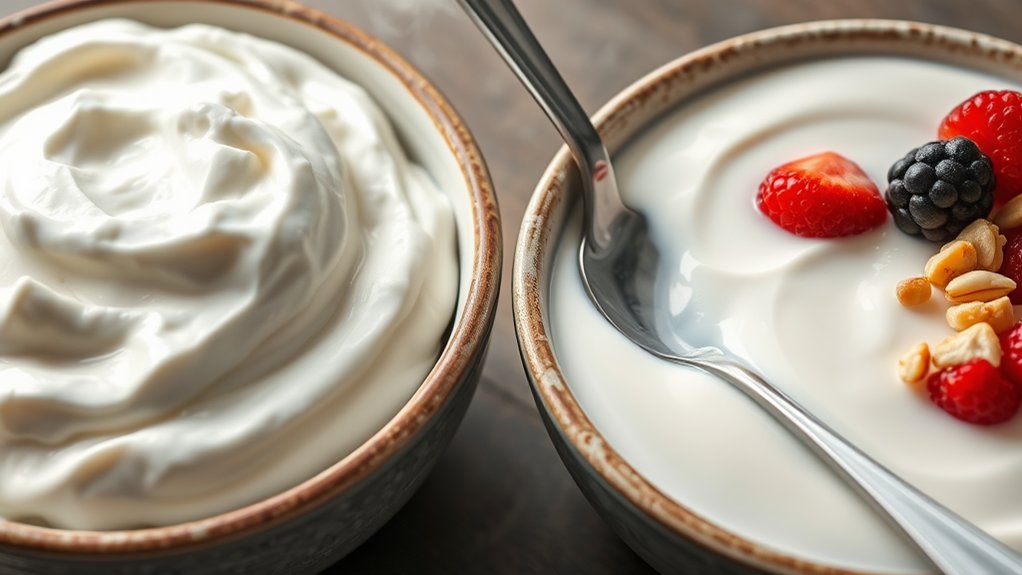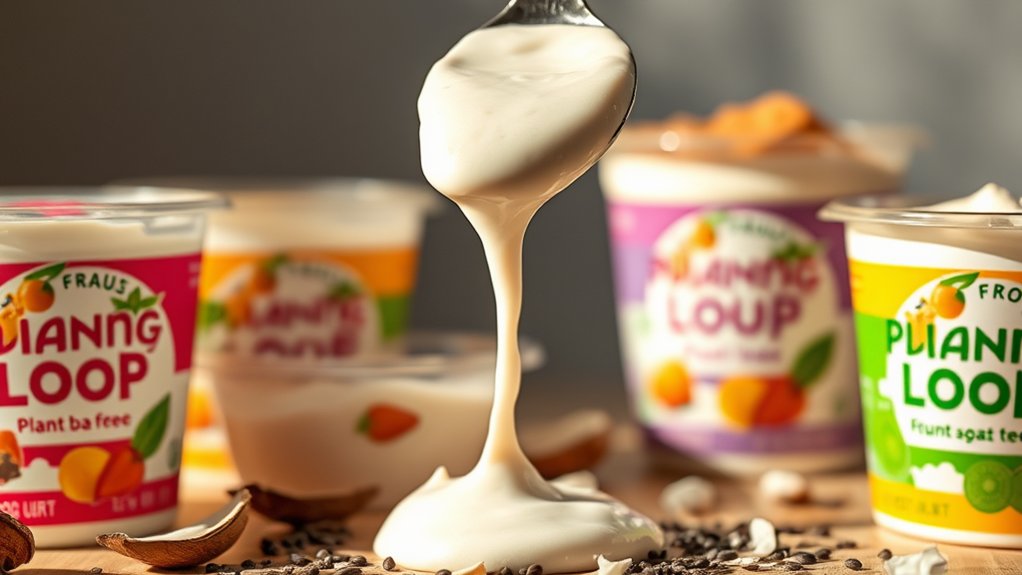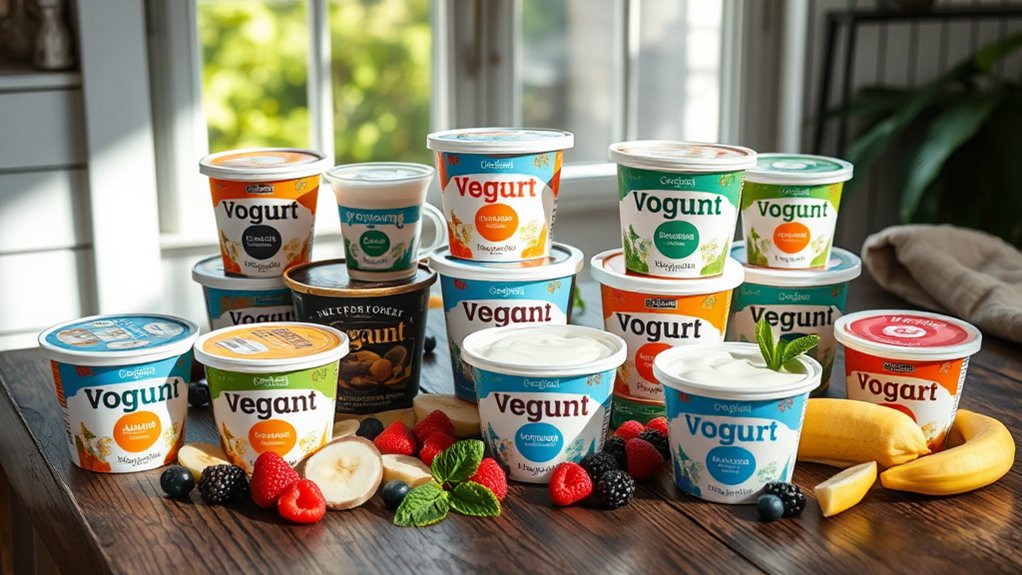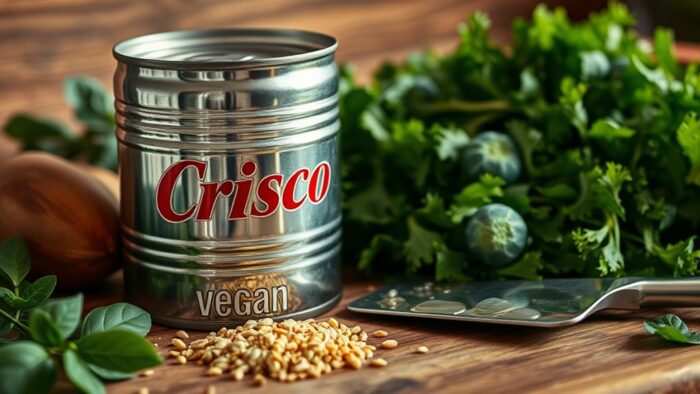Is Greek Yogurt Vegan?

Are you curious about whether Greek yogurt fits into a vegan lifestyle? You’re not alone; many people are checking out plant-based diets and want to know what options are available. Greek yogurt has gained popularity for its creamy texture and health benefits, but is it truly vegan-friendly? Understanding the ingredients and processes behind your favorite foods is essential, especially when it comes to dietary choices. While traditional Greek yogurt has its perks, there are also plant-based alternatives that could satisfy your cravings without any animal products. Let’s dive deeper into what makes Greek yogurt unique and what options you might consider if you’re looking for a vegan-friendly substitute.
Understanding Greek Yogurt and Its Ingredients

Greek yogurt is a popular choice for many, but it’s essential to understand its ingredients, especially if you follow a vegan diet. Traditional Greek yogurt is typically made from cow’s milk, which means it isn’t suitable for vegans. The main components of conventional Greek yogurt include milk, live bacterial cultures, and often thickeners like gelatin, an ingredient derived from animals.
For those looking for plant-based alternatives, vegan Greek yogurt options are available. These are typically made from almond, coconut, or soy milk and use plant-based thickeners such as tapioca starch or pectin instead of gelatin.
When choosing a vegan Greek yogurt, it’s crucial to read the ingredient labels carefully. Make sure to look for products that don’t contain any animal-derived ingredients, including dairy and gelatin, to make certain they align with your dietary preferences.
The Dairy Content of Traditional Greek Yogurt

When you look at traditional Greek yogurt, you’ll see that it’s mainly made from cow’s or sheep’s milk, which means it does contain dairy and lactose.
This dairy base gives Greek yogurt its signature thickness and also boosts its protein content, providing around 10 grams per serving.
However, because it’s made from animal products, Greek yogurt isn’t suitable for those who follow a vegan diet or are lactose intolerant.
Now, let’s analyze some alternative options for those who are looking for dairy-free alternatives.
Dairy Ingredients Overview
Greek yogurt is well-known for its rich, creamy texture and impressive nutritional profile. However, it’s crucial to recognize that traditional Greek yogurt is made from cow’s milk, which means it isn’t suitable for vegans.
The process of making Greek yogurt involves straining regular yogurt to eliminate whey, resulting in a thicker product that retains both lactose and protein. This lactose content also makes Greek yogurt problematic for those who are lactose intolerant.
While Greek yogurt contains beneficial live cultures, these probiotics originate from dairy, reinforcing its classification as a non-vegan product. Additionally, some manufacturers may incorporate gelatin to improve texture, which is another animal-derived ingredient.
For individuals seeking dairy-free options, there are plenty of plant-based yogurt alternatives available on the market. These options can provide similar textures and flavors without the use of animal products, making them a suitable choice for vegans and those with lactose intolerance.
Analyzing these alternatives can help you find a yogurt that aligns with your dietary preferences while still offering a delicious taste.
Nutritional Comparison Analysis
Greek yogurt is a popular choice for those looking to increase their diet with quality nutrition. Its dairy content contributes significantly to its appeal, particularly for individuals focused on increasing their protein and calcium intake. With approximately 10 grams of protein per 100 grams, Greek yogurt is an effective way to help meet daily protein needs.
In addition to its protein content, Greek yogurt offers around 100 mg of calcium per serving, which is essential for maintaining strong bones. Furthermore, it contains live probiotics that support gut health, although the levels of these beneficial bacteria can vary based on the fermentation process used.
For those who follow low-carbohydrate diets, traditional Greek yogurt typically has a lower carbohydrate content, making it a suitable option.
However, it’s important to remember that Greek yogurt is a dairy product and isn’t suitable for vegans. If you’re checking out plant-based alternatives, there are numerous vegan yogurt options available that provide similar nutritional benefits without dairy.
Why Greek Yogurt Is Not Vegan

Greek yogurt isn’t considered vegan mainly because it’s made from cow’s milk, which is an animal product.
Some brands might also include gelatin, derived from animal collagen, which reinforces its non-vegan classification.
For those adhering to a vegan diet, the inclusion of dairy and animal-derived additives means Greek yogurt isn’t a suitable option.
Now, if you’re looking for alternatives to Greek yogurt that fit a vegan lifestyle, there are plenty of plant-based options available that can provide similar textures and flavors.
Dairy Ingredient Presence
Greek yogurt is a popular choice for many due to its creamy texture and tangy flavor. However, it’s important to understand that traditional Greek yogurt is a dairy product, made primarily from cow’s milk. This dairy ingredient presence is a key reason why Greek yogurt isn’t considered vegan.
When you come across plant-based alternatives labeled as “Greek-style,” be cautious. Many of these products still use dairy-based cultures, which excludes them from being truly vegan.
Moreover, some Greek yogurts may contain animal-derived ingredients such as gelatin, reinforcing their non-vegan classification.
If you’re following a plant-based lifestyle and looking for a suitable alternative, it’s crucial to seek out vegan Greek yogurt. These products are specifically formulated without any animal-derived ingredients, making sure they align with your dietary preferences.
Always check the labels to confirm that your choice meets your vegan standards, providing you with a delicious and ethical option.
Gelatin and Animal Products
When considering Greek yogurt, it’s important to be aware that many traditional varieties contain gelatin, which is a thickening agent sourced from animal products. This means that traditional Greek yogurt isn’t suitable for vegans.
Furthermore, several brands may include additional animal products, which further excludes them from vegan diets. Here are some essential points to keep in mind:
- Source of Gelatin: Gelatin is derived from collagen, which is found in the bones, skin, and tissues of animals. For those following a vegan lifestyle, this is a crucial consideration.
- Dairy Ingredients: Traditional Greek yogurt often includes whey and casein, both of which are proteins derived from milk. This means that even if a yogurt is labeled as Greek, it may still contain animal-based ingredients.
- Vegan Alternatives: While some products may be labeled as “vegan,” it’s essential to read the ingredient list carefully. Not all plant-based yogurts are free from non-vegan additives.
- Plant-Based Options: There are plant-based Greek yogurt alternatives available, commonly made from soy or almond milk. However, to assure that you’re selecting a truly vegan product, look for clear labeling indicating that it’s vegan.
To make informed choices, always check the ingredient list of any yogurt product you consider, so you can make certain that it aligns with your dietary preferences and lifestyle.
Analyzing Vegan Alternatives to Greek Yogurt

If you’re analyzing vegan alternatives to Greek yogurt, you’ll find a variety of options that maintain a creamy texture and rich flavor. Many brands offer vegan Greek yogurt made from ingredients like almond milk or coconut milk, which can closely mimic the creaminess of traditional dairy yogurt.
Additionally, soy milk and cashew-based yogurts are also available, catering to different dietary preferences.
A significant benefit of these vegan yogurts is that they’re often fortified with probiotic powder, which can support digestive health in a manner similar to dairy yogurt. Brands such as Silk and Kite Hill provide both flavored and plain varieties, allowing you to choose based on your taste preferences.
As the demand for plant-based products increases, many retailers are expanding their dairy-free selections. This shift reflects a growing interest in healthier eating habits, making it easier for consumers to find vegan options that suit their needs.
High-Protein Vegan Yogurt Options

High-protein vegan yogurt options are becoming increasingly popular as more individuals seek out nutritious, dairy-free alternatives. These yogurts typically incorporate ingredients such as soy milk, almond milk, or cashews, which contribute to their impressive protein content.
If you’re looking into high-protein vegan yogurt, here are some valuable options to consider:
- Brand Options: Brands like Silk and Kite Hill offer fortified vegan Greek yogurts that aren’t only high in protein but also contain probiotics, which can support gut health.
- Homemade Alternatives: For those interested in making their own, you can create a tasty vegan Greek yogurt by blending silken tofu with soy milk. This simple recipe can yield approximately 9 grams of protein per serving.
- Store-Bought Varieties: Many commercially available vegan yogurts now include added pea protein, which effectively boosts their overall protein content, making them a convenient and nutritious option.
- Improving with Probiotics: If you’re looking to improve your yogurt’s digestive benefits, consider adding probiotic capsules. This can complement the natural probiotics found in many yogurt products.
With protein levels ranging from 6 to 10 grams per serving, high-protein vegan yogurt serves as an excellent dairy-free choice for those looking to increase their protein intake.
Whether you prefer store-bought convenience or enjoy making your own, there are plenty of options available to fit your dietary needs and preferences.
Texture and Taste Comparisons: Vegan vs. Traditional

When examining the differences between vegan and traditional Greek yogurt, it’s important to consider both texture and taste, as these factors significantly influence consumer preferences.
Traditional Greek yogurt, which is made from dairy, is known for its creamy and tangy texture that many people find appealing. Its richness is often a key reason for its popularity.
On the other hand, vegan Greek yogurt is crafted from plant-based ingredients such as soy, almond, or coconut milk. This results in a range of textures that can vary significantly. For instance, coconut-based vegan yogurts tend to provide a creamier mouthfeel compared to their almond or soy counterparts. This variety allows consumers to choose based on their personal preferences.
Taste is another crucial aspect. Some individuals appreciate the pleasantly tangy flavor of vegan Greek yogurt, while others might find they prefer the deeper richness of traditional yogurt. It’s essential to recognize that taste is subjective, and different people will have different experiences.
From a nutritional standpoint, vegan Greek yogurt often contains lower calories and no saturated fat, appealing to those who are health-conscious. However, the protein content can vary, so it’s worthwhile for consumers to check labels if protein intake is a priority.
Overall, feedback from consumers reveals a divide: some individuals enjoy the benefits of vegan alternatives, while others maintain a strong preference for the taste and texture of traditional Greek yogurt.
The Rise of Plant-Based Yogurt Products

The demand for plant-based yogurt products has seen significant growth as consumers prioritize healthier and more ethical food choices. This increase in popularity is closely linked to a rising awareness of lactose intolerance and dairy allergies, prompting many to seek alternatives.
Brands are responding by expanding their offerings to include a variety of flavors and formulations. Plant-based yogurt options are now commonly made from ingredients like almond, coconut, and soy milk, providing a diverse range of choices for consumers. One of the appealing aspects of these products is their creamy texture, which closely resembles that of traditional yogurt, making them a satisfying alternative.
Additionally, many plant-based yogurt products boast lower calorie counts and are enriched with probiotics, which can contribute to digestive health. Recognized brands such as Silk and Cocojune are leading the charge in this market, offering high-quality options that resonate with health-conscious consumers.
As plant-based yogurt becomes more available, it’s evident that this segment is on an upward trajectory, aligning with the broader trend towards healthier eating habits.
Whether you’re lactose intolerant, following a vegan lifestyle, or simply looking to incorporate more plant-based options into your diet, plant-based yogurt products are worth considering.
How to Choose the Best Vegan Yogurt for You

Choosing the right vegan yogurt can be a daunting task, given the wide variety of options available today. Start by focusing on the base ingredients; look for plant-based options like almond, soy, or coconut milk to make sure you’re selecting a dairy-free product.
Next, it’s important to examine the nutritional content. Many vegan yogurts are enriched with protein and probiotics, which can offer similar health benefits as traditional yogurts. When assessing the yogurt, consider the texture and flavor, as personal preferences will vary. For instance, you might enjoy the creamy consistency of coconut-based yogurts, while others may prefer the lighter texture of almond or soy varieties.
Ingredient labels are crucial in your selection process. Be on the lookout for additives that aren’t vegan, such as gelatin, and opt for brands that use plant-based thickeners like pectin or tapioca starch instead.
Finally, don’t hesitate to try different brands and flavors to discover what best suits your taste. With some exploration and attention to these key factors, you can find a vegan yogurt that aligns with your dietary preferences and nutritional needs.





